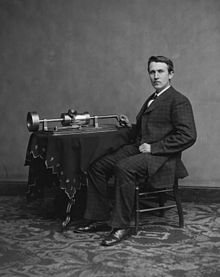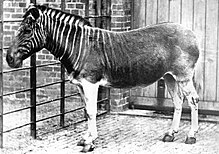The Momentous Year
The year 1945 had no lack of significant events, many of which were connected with the inevitable Allied victory and finally the denouement of World War II. The Nazi concentration camp at Auschwitz, Poland, was liberated on January 27. February 4 marked the Yalta Conference, where Franklin Roosevelt, Winston Churchill and Josef Stalin strategized the final defeat and ensuing occupation of Germany. February 16 was the day when American paratroopers landed on Corregidor Island in the Philippines, which they recaptured from the Japanese within two weeks. On February 19, U.S. Marines invaded Iwo Jima, eventually taking it from Japan after overcoming fierce resistance.
April 29 marked the liberation of the Nazi concentration camp in Dachau, Germany, by the U.S. Seventh Army. Adolf Hitler and Eva Braun committed suicide the next day. This led to the signing of surrender documents by German officials at General Dwight Eisenhower’s headquarters in Reims, France, on May 7, and the proclamation of V-E Day on May 8.
August 6 marked the atomic bombing of Hiroshima, Japan, by the crew of the Enola Gay, which was followed on August 9 by an atom bomb being dropped on Nagasaki, Japan. This prompted the Japanese signing of surrender documents aboard the USS Missouri on September 2. On September 8, Japan officially turned over the occupation of South Korea to United States troops and the occupation of North Korea to Soviet troops, the dividing line of the 38th Parallel having been decided upon in July at the Potsdam Conference.
While the war dominated the news and people’s attention, the year 1945 held other noteworthy happenings. George Orwell published his memorable novel Animal Farm, setting forth consequences of the idea that “All animals are equal, but some animals are more equal than others” in an obvious attempt to have readers consider the implications with regard to human society.
President Franklin Roosevelt died in Warm Springs, Georgia, on April 12, 1945, which led to Harry Truman becoming the 33rd President of the United States. The United Nations charter was signed in San Francisco on June 26.
John Birch, a missionary to China with the World Fundamental Baptist Missionary Fellowship, was killed by Chinese communists on August 25, 1945. After graduating from Mercer University in Macon, Georgia, in 1939, Birch had attended J. Frank Norris’ Fundamental Baptist Bible Institute in Fort Worth, Texas, before heading to China. The John Birch Society, an anti-communist and limited government organization founded by Robert Welch in 1958, was named in honor of him.
The Marvelous Day
On August 12, 1865, British surgeon Joseph Lister demonstrated the use of carbolic acid as a means of preventing infection in operation wounds. Lister’s objective was to reduce the then-current 50% mortality rate of amputees, but his technique provided much broader success.
Thomas Edison chose August 12, 1877, to publicly demonstrate his new invention of the phonograph in Menlo Park, New Jersey. He did so by playing a recording of himself reciting “Mary Had a Little Lamb” to a group of astounded witnesses.

The last of the quaggas died on August 12, 1883, in an Amsterdam zoo. What was a quagga? It was a South African zebra hunted widely and killed because it competed with domesticated animals for forage. Interestingly, a venture to breed a quagga-like zebra using DNA from a quagga hide and selective breeding has been underway since 1987, producing an animal which looks much like the quagga.

The Model T produced by the Ford Motor Company was assembled on August 12, 1908. It was Ford’s first mass-produced, assembly-line vehicle, intended to become accessible for the average family. The retail price of the roadster version was $825, which the tourer version sold for $850. The Model T was so successful that Henry Ford watched as the 15 millionth vehicle came off the assembly line in 1927.
The Amazing Combination
When we put the day of August 12 together with the year 1945, we come to a truly unmatched and unmatchable historic moment. On this day the world greeted the arrival of someone who would become the uncontested record-holder as the person with the greatest longevity as a 29-year-old. Today, that record stands at 46 years. Only God knows how many years will be added to it!

Happy Birthday, Joyce!
Such a great summary of a special day! Happy birthday, Joyce!
Aw! That is so special, Jim. Thank you! I feel more 46 than 75!